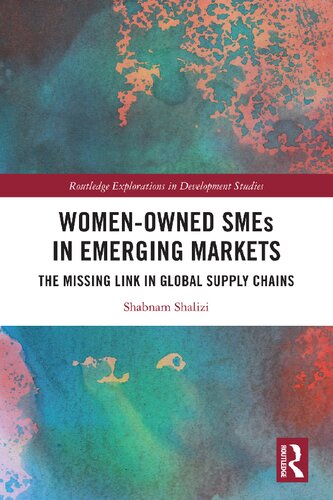

Most ebook files are in PDF format, so you can easily read them using various software such as Foxit Reader or directly on the Google Chrome browser.
Some ebook files are released by publishers in other formats such as .awz, .mobi, .epub, .fb2, etc. You may need to install specific software to read these formats on mobile/PC, such as Calibre.
Please read the tutorial at this link: https://ebookbell.com/faq
We offer FREE conversion to the popular formats you request; however, this may take some time. Therefore, right after payment, please email us, and we will try to provide the service as quickly as possible.
For some exceptional file formats or broken links (if any), please refrain from opening any disputes. Instead, email us first, and we will try to assist within a maximum of 6 hours.
EbookBell Team

4.7
56 reviewsThis book investigates women as business owners in emerging markets, documenting the structural difficulties they face as a result of their seeking access to global supply chains, and demonstrating the ways in which they are rewriting norms and challenging market assumptions.
Although women own an estimated one-third of all small and medium-sized enterprises (SMEs) in emerging markets, they are deeply underrepresented in global supply chains. In what the author refers to as the Women in Trade Deficit, women-owned enterprises earn less than 1% of all money spent on vendors by large corporations and governments worldwide. Drawing on an in-depth empirical investigation of a range of SMEs in Bangladesh, Nigeria, and Sri Lanka, this book investigates how women enter the supply chains of major global firms and multinational corporations and the challenges they face in doing so. Overall, the book argues that these business owners are rewriting norms and rearranging markets through networked enterprises to advance what the author calls prosocial industrialism.
Whilst many studies focus on women at the micro-enterprise or laborer level, this book makes an important contribution to our understanding of their role at the helm of SMEs that trade internationally. As such, it will be of interest to researchers across business studies, economics, sociology, and development studies, and to donor agencies, policymakers, and the global private sector.